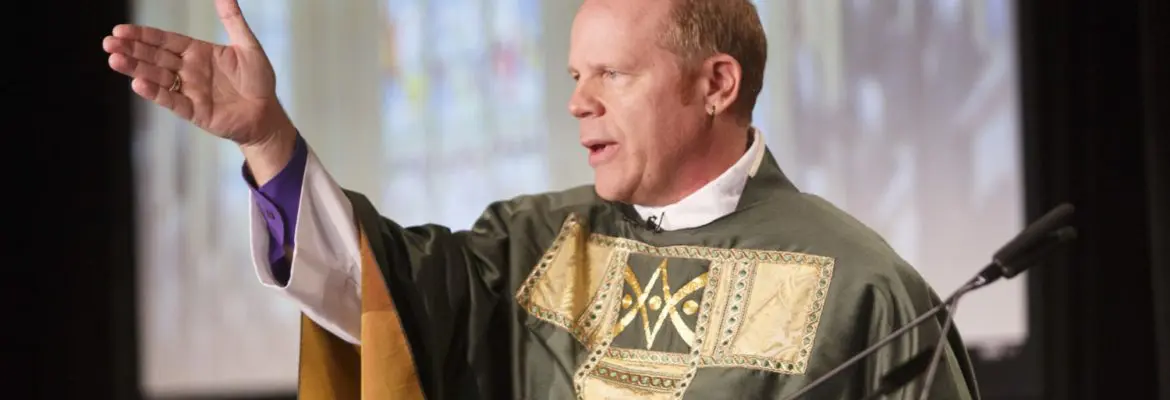
Dear Friends,
Today the Church calendar remembers St. Augustine, the first Archbishop of Canterbury. Known as the “Apostle of England,” in the eight short years from his arrival to his death in Canterbury in 605, he constructed a church, founded a monastery and firmly embedded the Christian faith in the region. Not all of his efforts were successful – he failed to reconcile the feuding factions of Anglo-Saxons and Britons, for example – but what I most admire about Augustine was his ability to deeply listen to the local context. Encouraged by Pope Gregory, Augustine did not seek to overthrow the customs of southern England, but to redeem and reframe them for Christ, to invite the faithful to do things in a new way.
As you’ll recall, the scriptural foundation for our Cast the Net visioning project comes from John 21, where the Risen Christ tells the disciples to cast their net on the other side of the boat. We have been asking ourselves collectively, as a Diocese, how we might respond to that gospel call in our time and place. What does it mean for us as a Church to do things differently? I am pleased to share an update on where we are in that process.
Over the past several months, close to 40 online listening sessions were held with almost 500 lay people from congregations across the Diocese. Many of you expressed appreciation for the opportunity to participate in these conversations, and a desire for them to continue, and to bear fruit in action.
The sessions were facilitated by members of the Diocesan Volunteer Corps. Their notes have now been analyzed by Dr. Sarah Kathleen Johnson, Director of Anglican Studies and Professor of Liturgy and Pastoral Theology at St. Paul University in Ottawa, whose research explores Christian worship in the context of North America’s changing religious landscape. We are fortunate to benefit from her expertise. Sarah’s report is now available online. It’s a long, rich read, filled with insights and verbatim comments from your fellow Anglicans. I commend it to your thoughtful, prayerful attention.
Earlier in the process, a parallel round of consultations had taken place with diocesan clergy. A series of reports, reflections and analyses based on that input have now also been posted on the same web page for everyone to see, consider and discuss.
What I hear coming through loud and clear in all this material is a willingness to embrace change, a recognition that we can’t go back to the way we were, some uncertainty about what the path forward looks like, and confidence in God’s faithfulness to show us the way. I also hear a yearning for, and a commitment to, spiritual renewal and discipleship as more important than – indeed, necessary for – institutional survival and sustainability.
This is by no means the end of the Cast the Net process. But we are moving towards the culmination of the “listening” phase. A few focus groups are still being organized, and your ongoing input is encouraged, via email and social media. A final report will come to Synod Council in September, and to Diocesan Synod in November.
Let us start to think and pray about how, as a Diocese, we might together respond in tangible, meaningful ways to the context we have identified and named. Let us acknowledge both the anxieties and the aspirations that have found expression through this listening work. And let us start to dream and talk about how the Holy Spirit is inspiring us to be the Church in a changing world.
Come, Holy Spirit, come!
Yours in Christ,
The Rt. Rev. Andrew Asbil
Bishop of Toronto